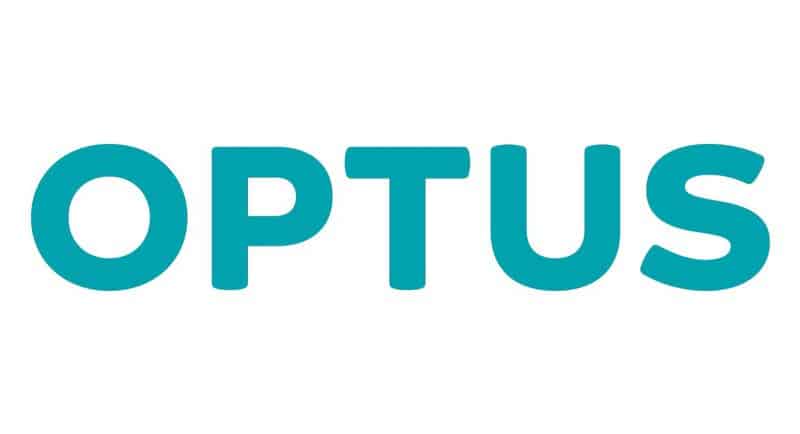
• Manthena also reveals why the ADMA workshops were “game-changing”
The Association for Data-Driven Marketing & Advertising (ADMA) provides digital and data-driven courses developed by industry experts for professionals to upskill and diversify their knowledge.
In a series with ADMA, Mediaweek spoke with Vinetha Manthena – the director of digital marketing at Optus – about engaging digital marketers in regulatory issues and why the workshops were “game-changing”.
Manthena joined the telco five years ago, bringing ten years of experience in media agencies and managing a digital marketing team.
The digital marketing director runs the in-house social programmatic team, in addition to SEO and affiliate marketing.
“The motivation for in-house began with the privacy and regulation changes. In my opinion, that amplifies the role of first-party data, which becomes a commodity.
“The vision for my team and my current role is to run a world-class marketing in-house team. We’re always testing and learning and pushing the forefront, especially as the landscape changes with our customers’ future,” she added.
Engaging and educating digital marketers on regulatory issues is essential, particularly in the ever-changing face of advertising. Manthena said: “We’ve already gone through a significant shift, if you look like five years ago, to where we are today.”
“The future is going to continue to become slightly more complex as we adapt as organisations to the regulatory changes, and it’s quite we’re kept in the loop on that.”
Manthena said that engaging in what is happening with regulatory issues enables them to plan for tests in the future, strategic changes and key priorities going forward, such as the phasing out of cookies by 2024.
The Optus digital marketing director also noted that it was important for digital marketers to be across regulatory issues to keep up with changing performance benchmarks.
“How they shift is a challenge that comes down to measurements of the future, which is some of the issues off the back of regulatory changes. Understanding that will enable us to plan for what those shifting benchmarks for the future are going to be,” Manthena added.
Google’s announcement of the delay in the phasing out of cookies gives Optus more time, according to Manthena.
“We’ve already got a clear vision of how we want to move forward in a cookieless future. The announcement allows us time to continue to do our tests and learns so that when that switch happens, hopefully, we will be in a situation where there shouldn’t be a significant change in our performance.”
The digital marketing director said Optus will be ready and operate primarily in cookieless environments by 2024.
Optus has participated in workshops facilitated by ADMA, and Manthena spoke highly of them, calling it a “game changer”.
“It’s refreshing to have an independent view on the regulatory changes broken down to the various audiences the workshop has been directed towards.”
The Optus digital marketing director explained that they have been able to educate multiple teams and departments.
Manthena noted that the workshops have opened conversations at Optus about priorities and how they pivot to ensure their customers’ best interests in protecting their privacy and data so that it is central to technical changes and consolidations in the future.
“ADMA has delivered that consolidated regulatory view, so that’s been informative and eye-opening for our teams.”
In addition to being “informative” and “eye-opening”, Manthena said that the response to the workshops from the Optus teams has been positive.
“We all know that making some of these changes within your platform with first-party data, it takes significant engineering and resources to enable some of those capabilities, and that has to be prioritised.
“The fact that you have your senior stakeholders engaged in the privacy and regulatory conversation allows leadership to prioritise these technical requirements that need to happen,” she said.
“It also ensures visibility and the importance of those regulatory changes on our business and organisation so that we can manage that impact from a performance perspective,” she added.
Mel Hopkins, vice president marketing CMO of Optus, said of ADMA’s regulation training: “As the marketing landscape continues to evolve, advertisers are increasingly shaping their future without cookies.
“This breeds innovation and creative thinking as advertisers seek new ways to reach and engage consumers. This allows for more human interaction between the brands and consumers, which leads to a stronger bond.
“By developing new solutions that can measure the true impact of data-driven marketing, the industry will be able to navigate the changing digital advertising climate,” she added.
Sarla Fernando
Sarla Fernando, ADMA’s head of regulatory & advocacy advisory, said the sessions are conducted for members to promote transparency and understanding of driven marketing and compliance within the organisation.
“By inviting internal and agency partners to these sessions, ADMA members such as Optus are able to build a stronger foundation for their journey together.
“The importance of regulatory and compliance conversations within marketing teams cannot be overstated. These teams are responsible for data collection, management and use and play a crucial role in safeguarding the organisation and the consumer.
Fernando noted that as regulatory changes continue to take effect, privacy standards will inevitably continue to develop due to updates in laws and changes implemented by tech platforms. But she noted that it would mainly reflect the evolving expectations of consumers.
“Consumers will not stop using online services simply because of privacy concerns, but they will seek out the brands they feel they can trust and use services that meet their expectations for privacy protection, she said.
“Marketers need to be ready for this fundamental shift. The best way to do this is to get training or partner up with industry representatives like ADMA that have the expertise and knowledge to help them navigate these changes successfully,” Fernando added.
Manthena has also joined the ADMA Regulatory and Advocacy Working Group, as nominated by Hopkins, vice president marketing CMO of Optus.
“For me, the best part of that is being on the journey with like-minded people to get their views on some of their challenges and points of view that impact the industry. And of course, I get to represent Optus, so it’s a huge privilege to do so,” she said.
“We discuss the way forward for us as an industry in terms of some of these changes, and it enables us to have a voice as a collective if you need to push back on any sort of changes, etc.,” she added.
Looking at the future for data-driven marketers, Manthena noted Optus is embracing change in innovation, particularly in light of the Google cookieless delay.
“We’ve been on the journey of organising our first-party data and enabling different tests and learns. We’ve reached out to the market and leaned on our tech partners to help us along this journey.”
The Optus digital marketing director said that a few of the tools and strategies they have deployed are live in-market with a propensity to purchase machine learning built from hundreds of signals and fed into a machine.
“We are almost able to predict if a consumer is on that path to purchase, which is exciting,” she said.
Manthena also noted that they have partnered with third-party vendors to test authenticated traffic and exploring ways to build up second-party data pipelines to drive scale in the future in a data-safe space.
–
Top image: Vinetha Manthena






